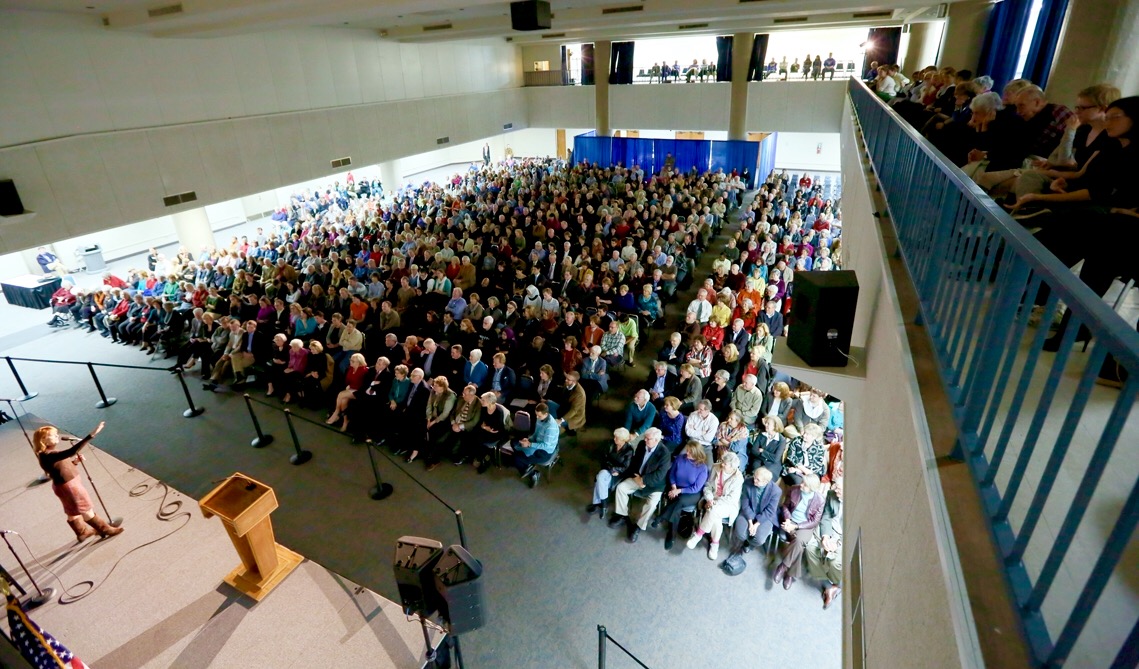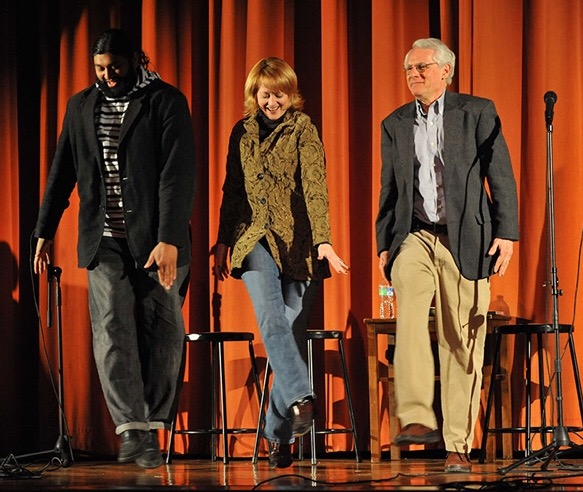A lot of ministers and congregations frown on the use of humor in the pulpit — or anywhere else in the church.
Many consider it to be sacrilegious, blasphemous or, at best, disrespectful to crack a joke to open a sermon.
“It can be misused,” Susan Sparks admits.
“But so can sanctity.”
Sparks is a leading expert on the topic of humor in the sanctuary. Her resume includes titles such as trial attorney, Baptist minister and stand-up comic. Her comedic talents have taken her far beyond open-mic nights to gigs before huge audiences and into national acclaim.
Initially, she studied comedy to improve her courtroom performances. Now it influences her preaching and pastoring. She shared how the two are not only compatible but integral during a recent conference call hosted by The Columbia Partnership’s FaithSoaring Churches Learning Community Initiative.
‘We can laugh at ourselves’
Humor can be a source of healing for individuals and communities and is a proven way to build bridges between people, congregations and even different faiths, said Sparks, senior pastor at Madison Avenue Baptist Church in New York City.
Sparks said she has studied the use of laughter in world religions and found that most intentionally incorporate it in numerous ways. That included early Christianity, too, but that changed when the faith became the state religion under Constantine.

Susan Sparks, an attorney-turned comic and Baptist preacher, says laugher can be spiritually healing. (Photo courtesy of Susan Sparks)
The Gnostics maintained a positive view of humor, which is why the Gospel of Thomas contains numerous references to Jesus laughing.
“We know Jesus laughed but that’s been completely excised from the gospels,” she said.
With help from the Puritans, the American church over the centuries has maintained a largely dim view of laughter within the four walls. But that attitude diminishes the full human experience.
“We take ourselves so seriously,” she said.
But that’s changing and there is a growing tradition of humor in preaching and pastoral care, according to Sparks.
And that’s a good thing. Medically, laughter has been been shown to trigger the release of endorphins, which positively impact the cardiovascular system and boost the immune system.
“If we can laugh at ourselves, we can forgive ourselves — and then others,” she said.
Sparks said laughter also can help alleviate anger and is often most effective in trying times.
“Funerals and other times of pain are sometimes the places where people laugh the most,” she said.
‘We make people feel less alone’
But humor must always be used thoughtfully and never at the expense of others, Sparks added.
“Don’t impose humor unilaterally.”
It shouldn’t feel forced for the minister, either, she said. It’s enough just to create an atmosphere open to levity.
They can start out by discerning what it is that makes their congregations laugh and what brings them joy, Sparks said. Ministers should have an idea of what members of their church watch on television, what movies they see and what activities inspire them.
Pastors also should be familiar with the struggles of their people.

Azhar Usman (left) is a Muslim comic who joins Baptist minister and comic Susan Sparks (center) and Jewish comedian Bob Alper in regular appearances. (Photo courtesy of Susan Sparks)
“Then you circle back to the scriptures where the stories are so rich and wonderful, which bridges those two things,” she said.
These are the same techniques good comics use before stand-up appearances, Sparks said.
“You have to know who you are talking to.”
That’s how comics try to connect with their audiences and also help audience members connect with each other.
Ministers can use “humor that honors” in the same way: as a bridge builder, she said.
Sparks said she’s seen it work not just in her church but out on the comedy circuit.
As part of the three-member “Laugh in Peace Tour,” Sparks joins a Muslim comic and a Jewish comic who seek to break down stereotypes and highlight commonalities between the faiths.
The three don’t proselytize or focus on religion, but instead share their experiences as Baptists, Muslims and Jews.
It usually isn’t long before audience members, regardless of religious affiliation, begin to identify with what they have in common, too.
“They start to bond,” she said.
In that way comedians and preachers share an important role.
“We make people feel less alone.”


